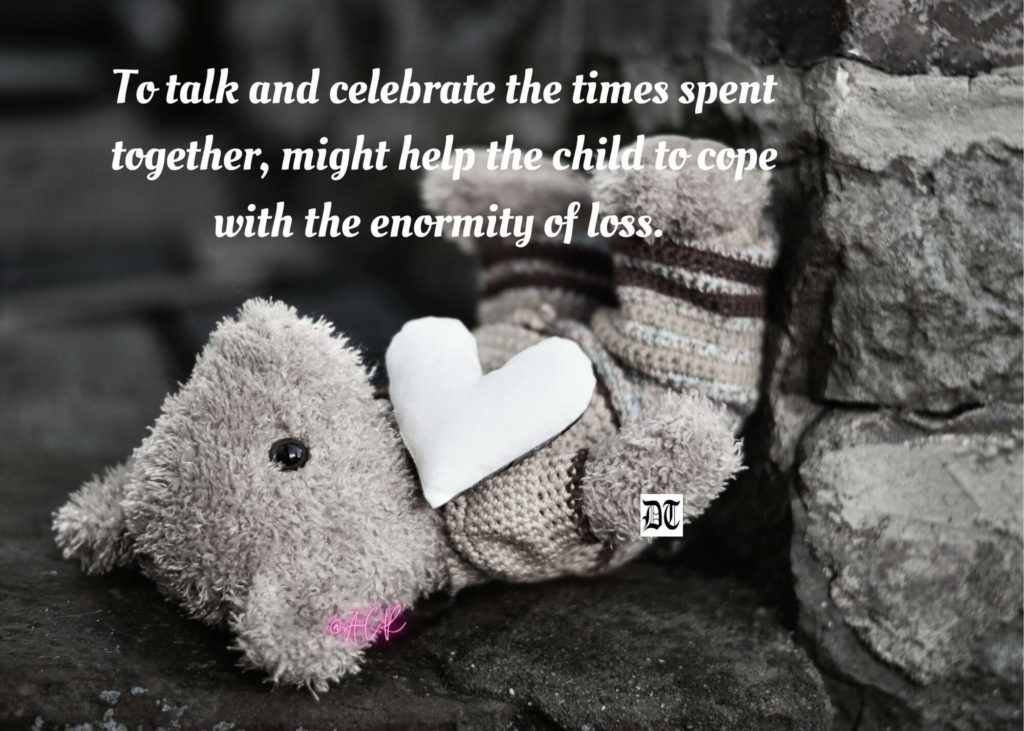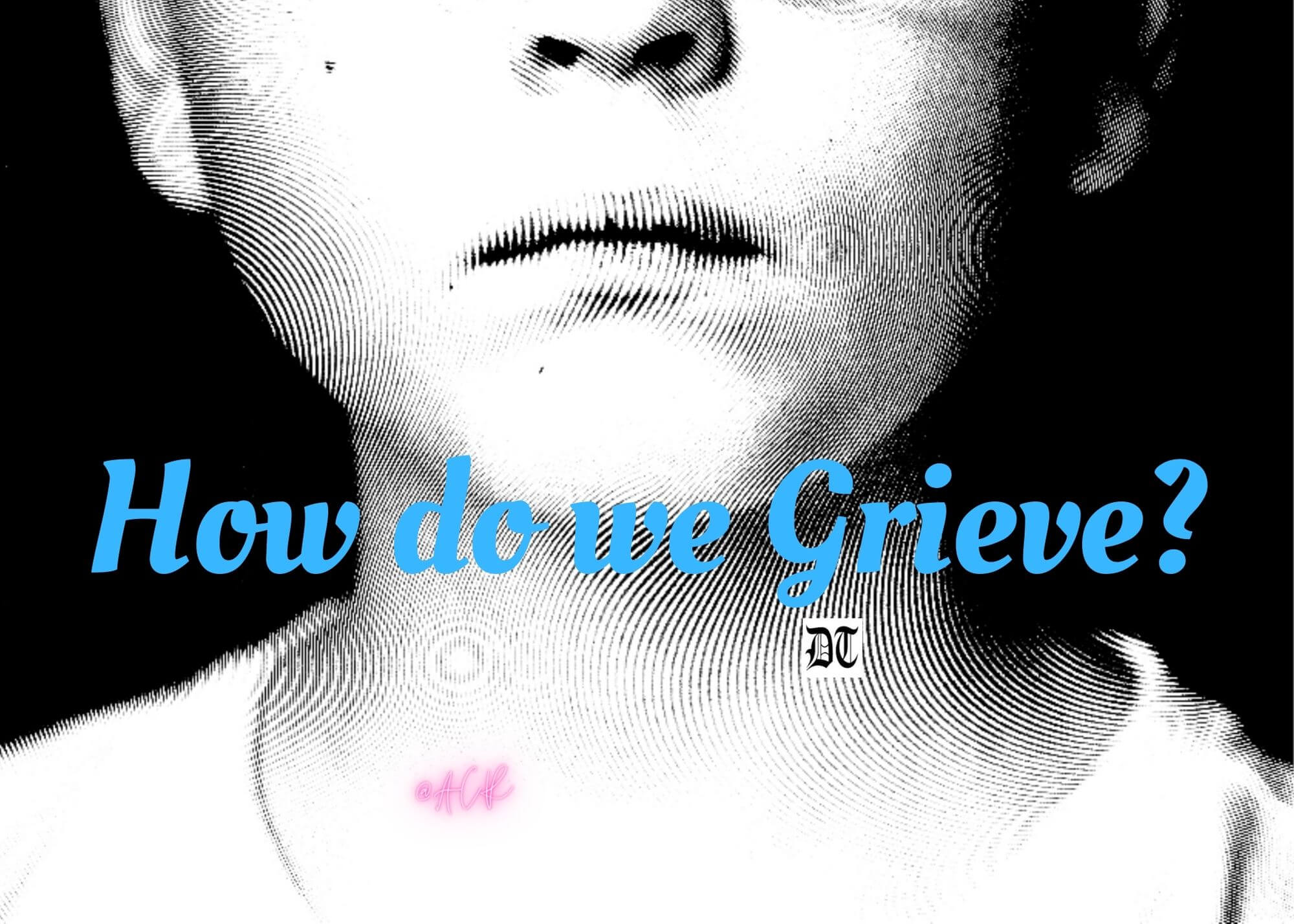Amanita practices mental health therapy. She tells us how to handle grief, particularly for a child. An exclusive for Different Truths.

A mother of a nine-year-old called me one day. It wasn’t even a month since her husband lost his fortnight long battle with Covid 19. While she had begun working from home and thus was sometimes distracted from the thoughts of the immense loss in her life, her son had started developing certain behavioural problems that required attention.
The fact that his father, who was about to buy a bicycle for him, would not be around anymore, was something he could not come to terms with.
The fact that his father, who was about to buy a bicycle for him, would not be around anymore, was something he could not come to terms with.
He was taking it out on his mother, misbehaving with her, not cooperating at all, and making her life more difficult than it already was.
How do we grieve? This is a question we seldom ask ourselves. We sweep away any thoughts of mortality whenever they invade our mind space, mostly because the unknown factor of death is too intimidating. The immensity of not being able to see a loved one again is unnerving to say the least.
Everyone has their own way of coping with grief. Which begs the question: what do we not say to a grieving child?
Everyone has their own way of coping with grief. Which begs the question: what do we not say to a grieving child? To say “move on” to a child, who has just lost a parent, is wrong.
An individual who has lost a dear one does not yet know a life without the person. The grieving person has only the memory to hold on to. To ask him to move on will probably sound insensitive. What can perhaps happen with time, with healing, is that the person can move forward with the memories. To love someone dearly is an act which perhaps can cross all boundaries, even that of life.
Again, to say to the child that the deceased parent is there with him or watching over him, might be confusing.
Again, to say to the child that the deceased parent is there with him or watching over him, might be confusing. Being with a person so far has meant being there physically. To grasp the concept of a non-physical presence might not be easy.
Mostly all one needs to do is to let the grieving person know that he or she is not alone. It works mostly to sit quietly beside their grief. If the person pours their heart out, cries aloud, laments, expresses their feelings of shock, guilt, and all other emotions, it is best to hear the person out.
Support groups help in these pressing times.
Support groups help in these pressing times. It can be a known group of friends familiar to the person who passed away or a group of people bound by the similar fate of having lost a dear one or any other set of people who have the capability to address the loss in their own way.

However, the child might feel more overwhelmed than an adult, not finding a safe space to vent out the engulfing emotions. To have suicidal thoughts at that time is not uncommon.
While there is no singular path to deal with grief, it often helps for the child to talk and hear about the deceased person. To talk and celebrate the times spent together, might help the child to cope with the enormity of loss.
Empathising with the child will go a long way to make him feel understood.
Often people keep quiet, thinking it might hurt the child, but it might not be the case for all. Empathising with the child will go a long way to make him feel understood.
The onus mostly falls upon the living parent to hold the child emotionally and it can be overwhelming for both of them.
In these terribly stressful times when we are losing our dear ones, or at least know people who have lost them, “I hear you” can be a mantra to help the person heal. If not with words, our actions and gestures can show our willingness to be with the mourning person, to mean that all we wish to say with sincerity is “I hear you”.
Just that much will do for now.
Visuals by Different Truths





 By
By
 By
By
 By
By